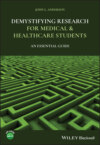Kitabı oku: «The Memoirs of Jacques Casanova de Seingalt, 1725-1798. Volume 22: to London», sayfa 3
CHAPTER VI
I Drive My Brother The Abbe From Paris—Madame du Rumain Recovers Her Voice Through My Cabala—A Bad Joke—The Corticelli—I Take d'Aranda to London My Arrival At Calais
As usual, Madame d'Urfe received me with open arms, but I was surprised at hearing her tell Aranda to fetch the sealed letter she had given him in the morning. I opened it, found it was dated the same day, and contained the following:
"My genius told me at day-break that Galtinardus was starting fromFontainebleau, and that he will come and dine with me to-day."
She chanced to be right, but I have had many similar experiences in the course of my life-experiences which would have turned any other man's head. I confess they have surprised me, but they have never made me lose my reasoning powers. Men make a guess which turns out to be correct, and they immediately claim prophetic power; but they forgot all about the many cases in which they have been mistaken. Six months ago I was silly enough to bet that a bitch would have a litter of five bitch pups on a certain day, and I won. Everyone thought it a marvel except myself, for if I had chanced to lose I should have been the first to laugh.
I naturally expressed my admiration for Madame d'Urfe's genius, and shared her joy in finding herself so well during her pregnancy. The worthy lunatic had given orders that she was not at home to her usual callers, in expectation of my arrival, and so we spent the rest of the day together, consulting how we could make Aranda go to London of his own free will; and as I did not in the least know how it was to be done, the replies of the oracle were very obscure. Madame d'Urfe had such a strong dislike to bidding him go, that I could not presume on her obedience to that extent, and I had to rack my brains to find out some way of making the little man ask to be taken to London as a favour.
I went to the Comedie Italienne, where I found Madame du Rumain, who seemed glad to see me back in Paris again.
"I want to consult the oracle on a matter of the greatest importance," said she, "and I hope you will come and see me tomorrow."
I, of course, promised to do so.
I did not care for the performance, and should have left the theatre if I had not wanted to see the ballet, though I could not guess the peculiar interest it would have for me. What was my surprise to see the Corticelli amongst the dancers. I thought I would like to speak to her, not for any amorous reasons, but because I felt curious to hear her adventures. As I came out I met the worthy Baletti, who told me he had left the stage and was living on an annuity. I asked him about the Corticelli, and he gave me her address, telling me that she was in a poor way.
I went to sup with my brother and his wife, who were delighted to see me, and told me that I had come just in time to use a little gentle persuasion on our friend the abbe, of whom they had got tired.
"Where is he?"
"You will see him before long, for it is near supper-time; and as eating and drinking are the chief concerns of his life, he will not fail to put in an appearance."
"What has he done?"
"Everything that a good-for-nothing can do; but I hear him coming, and I will tell you all about it in his presence."
The abbe was astonished to see me, and began a polite speech, although I did not favour him with so much as a look. Then he asked me what I had against him.
"All that an honest man can have against a monster. I have read the letter you wrote to Possano, in which I am styled a cheat, a spy, a coiner, and a poisoner. What does the abbe think of that?"
He sat down to table without a word, and my brother began as follows:
"When this fine gentleman first came here, my wife and I gave him a most cordial welcome. I allowed him a nice room, and told him to look upon my house as his own. Possibly with the idea of interesting us in his favour, he began by saying that you were the greatest rascal in the world. To prove it he told us how he had carried off a girl from Venice with the idea of marrying her, and went to you at Genoa as he was in great necessity. He confesses that you rescued him from his misery, but he says that you traitorously took possession of the girl, associating her with two other mistresses you had at that time. In fine, he says that you lay with her before his eyes, and that you drove him from Marseilles that you might be able to enjoy her with greater freedom.
"He finished his story by saying that as he could not go back to Venice, he needed our help till he could find some means of living on his talents or through his profession as a priest. I asked him what his talents were, and he said he could teach Italian; but as he speaks it vilely, and doesn't know a word of French, we laughed at him. We were therefore reduced to seeing what we could do for him in his character of priest, and the very next day my wife spoke to M. de Sauci, the ecclesiastical commissioner, begging him to give my brother an introduction to the Archbishop of Paris, who might give him something that might lead to his obtaining a good benefice. He would have to go to our parish church, and I spoke to the rector of St. Sauveur, who promised to let him say mass, for which he would receive the usual sum of twelve sols. This was a very good beginning, and might have led to something worth having; but when we told the worthy abbe of our success, he got into a rage, saying that he was not the man to say mass for twelve sols, nor to toady the archbishop in the hope of being taken into his service. No, he was not going to be in anyone's service. We concealed our indignation, but for the three weeks he has been here he has turned everything upside down. My wife's maid left us yesterday, to our great annoyance, because of him; and the cook says she will go if he remains, as he is always bothering her in the kitchen. We are therefore resolved that he shall go, for his society is intolerable to us. I am delighted to have you here, as I think we ought to be able to drive him away between us, and the sooner the better."
"Nothing easier," said I; "if he likes to stay in Paris, let him do so. You can send off his rags to some furnished apartments, and serve him with a police order not to put foot in your house again. On the other hand if he wants to go away, let him say where, and I will pay his journey-money this evening."
"Nothing could be more generous. What do you say, abbe?"
"I say that this is the way in which he drove me from Marseilles. What intolerable violence!"
"Give God thanks, monster, that instead of thrashing you within an inch of your life as you deserve, I am going to give you some money! You thought you would get me hanged at Lyons, did you?"
"Where is Marcoline?"
"What is that to you? Make haste and choose between Rome and Paris, and remember that if you choose Paris you will have nothing to live on."
"Then I will go to Rome."
"Good! The journey only costs twenty louis, but I will give you twenty-five."
"Hand them over."
"Patience. Give me pens, ink and paper."
"What are you going to write?"
"Bills of exchange on Lyons, Turin, Genoa, Florence, and Rome. Your place will be paid as far as Lyons, and there you will be able to get five louis, and the same sum in the other towns, but as long as you stay in Paris not one single farthing will I give you. I am staying at the 'Hotel Montmorenci;' that's all you need know about me."
I then bade farewell to my brother and his wife, telling them that we should meet again. Checco, as we called my brother, told me he would send on the abbe's trunk the day following, and I bade him do so by all means.
The next day trunk and abbe came together. I did not even look at him, but after I had seen that a room had been assigned to him, I called out to the landlord that I would be answerable for the abbe's board and lodging for three days, and not a moment more. The abbe tried to speak to me, but I sternly declined to have anything to say to him, strictly forbidding Clairmont to admit him to my apartments.
When I went to Madame du Rumain's, the porter said,—
"Sir, everybody is still asleep, but who are you? I have instructions."
"I am the Chevalier de Seingalt."
"Kindly come into my lodge, and amuse yourself with my niece. I will soon be with you."
I went in, and found a neatly-dressed and charming girl.
"Mademoiselle," said I, "your uncle has told me to come and amuse myself with you."
"He is a rascal, for he consulted neither of us."
"Yes, but he knew well enough that there could be no doubt about my opinion after I had seen you."
"You are very flattering, sir, but I know the value of compliments."
"Yes, I suppose that you often get them, and you well deserve them all."
The conversation, as well as the pretty eyes of the niece, began to interest me, but fortunately the uncle put an end to it by begging me to follow him. He took me to the maid's room, and I found her putting on a petticoat, and grumbling the while.
"What is the matter, my pretty maid? You don't seem to be in a good humour."
"You would have done better to come at noon; it is not nine o'clock yet, and madame did not come home till three o'clock this morning. I am just going to wake her, and I am sorry for her."
I was taken into the room directly, and though her eyes were half closed she thanked me for awaking her, while I apologized for having disturbed her sleep.
"Raton," said she, "give us the writing materials, and go away. Don't come till I call you, and if anyone asks for me, I am asleep."
"Very good, madam, and I will go to sleep also."
"My dear M. Casanova, how is it that the oracle has deceived us? M. du Rumain is still alive, and he ought to have died six months ago. It is true that he is not well, but we will not go into all that again. The really important question is this: You know that music is my favourite pursuit, and that my voice is famous for its strength and compass; well, I have completely lost it. I have not sung a note for three months. The doctors have stuffed me with remedies which have had no effect: It makes me very unhappy, for singing was the one thing that made me cling to life. I entreat you to ask the oracle how I can recover my voice. How delighted I should be if I could sing by to-morrow. I have a great many people coming here, and I should enjoy the general astonishment. If the oracle wills it I am sure that it might be so, for I have a very strong chest. That is my question; it is a long one, but so much the better; the answer will be long too, and I like long answers."
I was of the same opinion, for when the question was a long one, I had time to think over the answer as I made the pyramid. Madame Rumain's complaint was evidently something trifling, but I was no physician, and knew nothing about medicine. Besides, for the honour of the cabala, the oracle must have nothing to do with mere empiric remedies. I soon made up my mind that a little care in her way of living would soon restore the throat to its normal condition, and any doctor with brains in his head could have told her as much. In the position I was in, I had to make use of the language of a charlatan, so I resolved on prescribing a ceremonial worship to the sun, at an hour which would insure some regularity in her mode of life.
The oracle declared that she would recover her voice in twenty-one days, reckoning from the new moon, if she worshipped the rising sun every morning, in a room which had at least one window looking to the east.
A second reply bade her sleep seven hours in succession before she sacrificed to the sun, each hour symbolizing one of the seven planets; and before she went to sleep she was to take a bath in honour of the moon, placing her legs in lukewarm water up to the knees. I then pointed out the psalms which she was to recite to the moon, and those which she was to say in the face of the rising sun, at a closed window.
This last direction filled her with admiration, "for," said she, "the oracle knew that I should catch cold if the window were open. I will do everything the oracle bids me," added the credulous lady, "but I hope you will get me everything necessary for the ceremonies."
"I will not only take care that you have all the requisites, but as a proof of my zeal for you, I will come and do the suffumigations myself that you may learn how it is done."
She seemed deeply moved by this offer, but I expected as much. I knew how the most trifling services are assessed at the highest rates; and herein lies the great secret of success in the world, above all, where ladies of fashion are concerned.
As we had to begin the next day, being the new moon, I called on her at nine o'clock. As she had to sleep for seven successive hours before performing the ceremonies to the rising sun, she would have to go to bed before ten; and the observance of all these trifles was of importance, as anyone can understand.
I was sure that if anything could restore this lady's voice a careful regimen would do it. I proved to be right, and at London I received a grateful letter announcing the success of my method.
Madame du Rumain, whose daughter married the Prince de Polignac, was a lover of pleasure, and haunted grand supper-parties. She could not expect to enjoy perfect health, and she had lost her voice by the way in which she had abused it. When she had recovered her voice, as she thought, by the influence of the genii, she laughed at anyone who told her that there was no such thing as magic.
I found a letter from Therese at Madame d'Urfe's, in which she informed me that she would come to Paris and take her son back by force if I did not bring him to London, adding that she wanted a positive reply. I did not ask for anything more, but I thought Therese very insolent.
I told Aranda that his mother would be waiting for us at Abbeville in a week's time, and that she wanted to see him.
"We will both give her the pleasure of seeing us."
"Certainly," said he; "but as you are going on to London, how shall I come back?"
"By yourself," said Madame d'Urfe, "dressed as a postillion."
"What shall I ride post? How delightful!"
"You must only cover eight or ten posts a day, for you have no need to risk your life by riding all night."
"Yes, yes; but I am to dress like a postillion, am I not?"
"Yes; I will have a handsome jacket and a pair of leather breeches made for you, and you shall have a flag with the arms of France on it."
"They will take me for a courier going to London."
With the idea that to throw difficulties in the way would confirm him in his desire to go, I said roughly that I could not hear of it, as the horse might fall and break his neck. I had to be begged and entreated for three days before I would give in, and I did so on the condition that he should only ride on his way back.
As he was certain of returning to Paris, he only took linen sufficient for a very short absence; but as I knew that once at Abbeville he could not escape me, I sent his trunk on to Calais, where we found it on our arrival. However, the worthy Madame d'Urfe got him a magnificent postillion's suit, not forgetting the top-boots.
This business which offered a good many difficulties was happily arranged by the action of pure chance; and I am glad to confess that often in my life has chance turned the scale in my favour.
I called on a banker and got him to give me heavy credits on several of the most important houses in London, where I wished to make numerous acquaintances.
While I was crossing the Place des Victoires, I passed by the house where the Corticelli lived, and my curiosity made me enter. She was astonished to see me, and after a long silence she burst into tears, and said,—
"I should never have been unhappy if I had never known you."
"Yes, you would, only in some other way; your misfortunes are the result of your bad conduct. But tell me what are your misfortunes."
"As I could not stay in Turin after you had dishonoured me . . ."
"You came to dishonour yourself here, I suppose. Drop that tone, or elseI will leave you."
She began her wretched tale, which struck me with consternation, for I could not help feeling that I was the first and final cause of this long list of woes. Hence I felt it was my duty to succour her, however ill she had treated me in the past.
"Then," said I, "you are at present the victim of a fearful disease, heavily in debt, likely to be turned out of doors and imprisoned by your creditors. What do you propose to do?"
"Do! Why, throw myself in the Seine, to be sure; that's all that is left for me to do. I have not a farthing left."
"And what would you do if you had some money?"
"I would put myself under the doctor's hands, in the first place, and then if any money was left I would go to Bologna and try to get a living somehow. Perhaps I should have learnt a little wisdom by experience."
"Poor girl, I pity you! and in spite of your bad treatment of me, which has brought you to this pass, I will not abandon you. Here are four louis for your present wants, and to-morrow I will tell you where you are to go for your cure. When you have got well again, I will give you enough money for the journey. Dry your tears, repent, amend your ways, and may God have mercy on you!"
The poor girl threw herself on the ground before me, and covered one of my hands with kisses, begging me to forgive her for the ill she had done me. I comforted her and went my way, feeling very sad. I took a coach and drove to the Rue de Seine, where I called on an old surgeon I knew, told him the story, and what I wanted him to do. He told me he could cure her in six weeks without anybody hearing about it, but that he must be paid in advance.
"Certainly; but the girl is poor, and I am doing it out of charity."
The worthy man took a piece of paper and gave me a note addressed to a house in the Faubourg St. Antoine, which ran as follows:
"You will take in the person who brings you this note and three hundred francs, and in six weeks you will send her back cured, if it please God. The person has reasons for not wishing to be known."
I was delighted to have managed the matter so speedily and at such a cheap rate, and I went to bed in a calmer state of mind, deferring my interview with my brother till the next day.
He came at eight o'clock, and, constant to his folly, told me he had a plan to which he was sure I could have no objection.
"I don't want to hear anything about it; make your choice, Paris orRome."
"Give me the journey-money, I will remain at Paris; but I will give a written engagement not to trouble you or your brother again. That should be sufficient."
"It is not for you to judge of that. Begone! I have neither the time nor the wish to listen to you. Remember, Paris without a farthing, or Rome with twenty-five louis."
Thereupon I called Clairmont, and told him to put the abbe out.
I was in a hurry to have done with the Corticelli affair, and went to the house in the Faubourg St. Antoine, where I found a kindly and intelligent-looking man and woman, and all the arrangements of the house satisfactory and appropriate to the performance of secret cures. I saw the room and the bath destined for the new boarder, everything was clean and neat, and I gave them a hundred crowns, for which they handed me a receipt. I told them that the lady would either come in the course of the day, or on the day following.
I went to dine with Madame d'Urfe and the young Count d'Aranda. After dinner the worthy marchioness talked to me for a long time of her pregnancy, dwelling on her symptoms, and on the happiness that would be hers when the babe stirred within her. I had put to a strong restrain upon myself to avoid bursting out laughing. When I had finished with her I went to the Corticelli, who called me her saviour and her guardian angel. I gave her two louis to get some linen out of pawn, and promised to come and see her before I left Paris, to give her a hundred crowns, which would take her back to Bologna. Then I waited on Madame du Rumain who had said farewell to society for three weeks.
This lady had an excellent heart, and was pretty as well, but she had so curious a society-manner that she often made me laugh most heartily. She talked of the sun and moon as if they were two Exalted Personages, to whom she was about to be presented. She was once discussing with me the state of the elect in heaven, and said that their greatest happiness was, no doubt, to love God to distraction, for she had no idea of calm and peaceful bliss.
I gave her the incense for the fumigation, and told her what psalms to recite, and then we had a delicious supper. She told her chamber-maid to escort me at ten o'clock to a room on the second floor which she had furnished for me with the utmost luxury, adding,—
"Take care that the Chevalier de Seingalt is able to come into my room at five o'clock to-morrow."
At nine o'clock I placed her legs in a bath of lukewarm water, and taught her how to suffumigate. Her legs were moulded by the hand of the Graces and I wiped them amorously, laughing within myself at her expression of gratitude, and I then laid her in bed, contenting myself with a solemn kiss on her pretty forehead. When it was over I went up to my room where I was waited on by the pretty maid, who performed her duties with that grace peculiar to the French soubrette, and told me that as I had become her mistress's chambermaid it was only right that she should be my valet. Her mirth was infectious, and I tried to make her sit down on my knee; but she fled away like a deer, telling me that I ought to take care of myself if I wanted to cut a good figure at five o'clock the next day. She was wrong, but appearances were certainly against us, and it is well known that servants do not give their masters and mistresses the benefit of the doubt.
At five o'clock in the morning I found Madame du Rumain nearly dressed when I went into her room, and we immediately went into another, from which the rising sun might have been see if the "Hotel de Bouillon" had not been in the way, but that, of course, was a matter of no consequence. Madame du Rumain performed the ceremonies with all the dignity of an ancient priestess of Baal. She then sat down to her piano, telling me that to find some occupation for the long morning of nine hours would prove the hardest of all the rules, for she did not dine till two, which was then the fashionable hour. We had a meat breakfast without coffee, which I had proscribed, and I left her, promising to call again before I left Paris.
When I got back to my inn, I found my brother there looking very uneasy at my absence at such an early hour. When I saw him I cried,—
"Rome or Paris, which is it to be?"
"Rome," he replied, cringingly.
"Wait in the antechamber. I will do your business for you."
When I had finished I called him in, and found my other brother and his wife, who said they had come to ask me to give them a dinner.
"Welcome!" said I. "You are come just in time to see me deal with the abbe, who has resolved at last to go to Rome and to follow my directions."
I sent Clairmont to the diligence office, and told him to book a place for Lyons; and then I wrote out five bills of exchange, of five louis each, on Lyons, Turin, Genoa, Florence, and Rome.
"Who is to assure me that these bills will be honoured?"
"I assure you, blockhead. If you don't like them you can leave them."
Clairmont brought the ticket for the diligence and I gave it to the abbe, telling him roughly to be gone.
"But I may dine with you, surely?" said he.
"No, I have done with you. Go and dine with Possano, as you are his accomplice in the horrible attempt he made to murder me. Clairmont, shew this man out, and never let him set foot here again."
No doubt more than one of my readers will pronounce my treatment of the abbe to have been barbarous; but putting aside the fact that I owe no man an account of my thoughts, deeds, and words, nature had implanted in me a strong dislike to this brother of mine, and his conduct as a man and a priest, and, above all, his connivance with Possano, had made him so hateful to me that I should have watched him being hanged with the utmost indifference, not to say with the greatest pleasure. Let everyone have his own principles and his own passions, and my favourite passion has always been vengeance.
"What did you do with the girl he eloped with?" said my sister-in-raw.
"I sent her back to Venice with the ambassadors the better by thirty thousand francs, some fine jewels, and a perfect outfit of clothes. She travelled in a carriage I gave her which was worth more than two hundred louis."
"That's all very fine, but you must make some allowance for the abbe's grief and rage at seeing you sleep with her."
"Fools, my dear sister, are made to suffer such grief, and many others besides. Did he tell you that she would not let him have anything to do with her, and that she used to box his ears?"
"On the the contrary, he was always talking of her love for him."
"He made himself a fine fellow, I have no doubt, but the truth is, it was a very ugly business."
After several hours of pleasant conversation my brother left, and I took my sister-in-law to the opera. As soon as we were alone this poor sister of mine began to make the most bitter complaints of my brother.
"I am no more his wife now," said she, "than I was the night before our marriage."
"What! Still a maid?"
"As much a maid as at the moment I was born. They tell me I could easily obtain a dissolution of the marriage, but besides the scandal that would arise, I unhappily love him, and I should not like to do anything that would give him pain."
"You are a wonderful woman, but why do you not provide a substitute for him?"
"I know I might do so, without having to endure much remorse, but I prefer to bear it."
"You are very praiseworthy, but in the other ways you are happy?"
"He is overwhelmed with debt, and if I liked to call upon him to give me back my dowry he would not have a shirt to his back. Why did he marry me? He must have known his impotence. It was a dreadful thing to do."
"Yes, but you must forgive him for it."
She had cause for complaint, for marriage without enjoyment is a thorn without roses. She was passionate, but her principles were stronger than her passions, or else she would have sought for what she wanted elsewhere. My impotent brother excused himself by saying that he loved her so well that he thought cohabitation with her would restore the missing faculty; he deceived himself and her at the same time. In time she died, and he married another woman with the same idea, but this time passion was stronger than virtue, and his new wife drove him away from Paris. I shall say more of him in twenty years time.
At six o'clock the next morning the abbe went off in the diligence, and I did not see him for six years. I spent the day with Madame d'Urfe, and I agreed, outwardly, that young d'Aranda should return to Paris as a postillion. I fixed our departure for the day after next.
The following day, after dining with Madame d'Urfe who continued to revel in the joys of her regeneration, I paid a visit to the Corticelli in her asylum. I found her sad and suffering, but content, and well pleased with the gentleness of the surgeon and his wife, who told me they would effect a radical cure. I gave her twelve louis, promising to send her twelve more as soon as I had received a letter from her written at Bologna. She promised she would write to me, but the poor unfortunate was never able to keep her word, for she succumbed to the treatment, as the old surgeon wrote to me, when I was at London. He asked what he should do with the twelve louis which she had left to one Madame Laura, who was perhaps known to me. I sent him her address, and the honest surgeon hastened to fulfil the last wishes of the deceased.
All the persons who helped me in my magical operations with Madame d'Urfe betrayed me, Marcoline excepted, and all save the fair Venetian died miserably. Later on the reader will hear more of Possano and Costa.
The day before I left for London I supped with Madame du Rumain, who told me that her voice was already beginning to return. She added a sage reflection which pleased me highly.
"I should think," she observed, "that the careful living prescribed by the cabala must have a good effect on my health."
"Most certainly," said I, "and if you continue to observe the rules you will keep both your health and your voice."
I knew that it is often necessary to deceive before one can instruct; the shadows must come before the dawn.
I took leave of my worthy Madame d'Urfe with an emotion which I had never experienced before; it must have been a warning that I should never see her again. I assured her that I would faithfully observe all my promises, and she replied that her happiness was complete, and that she knew she owed it all to me. In fine, I took d'Aranda and his top-boots, which he was continually admiring, to my inn, whence we started in the evening, as he had begged me to travel by night. He was ashamed to be seen in a carriage dressed as a courier.
When we reached Abbeville he asked me where his mother was.
"We will see about it after dinner."
"But you can find out in a moment whether she is here or not?"
"Yes, but there is no hurry."
"And what will you do if she is not here?"
"We will go on till we meet her on the way. In the meanwhile let us go and see the famous manufactory of M. Varobes before dinner."
"Go by yourself. I am tired, and I will sleep till you come back."
"Very good."
I spent two hours in going over the magnificent establishment, the owner himself shewing it me, and then I went back to dinner and called for my young gentleman.
"He started for Paris riding post," replied the innkeeper, who was also the post-master, "five minutes after you left. He said he was going after some dispatches you had left at Paris."
"If you don't get him back I will ruin you with law-suits; you had no business to let him have a horse without my orders."
















